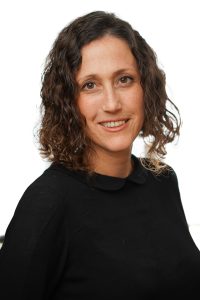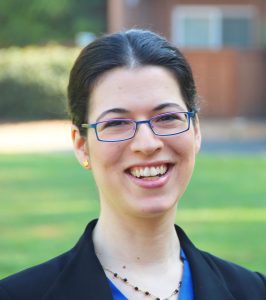4 Researchers, 4 Fields, 4 ERC Grants
Four Technion researchers, all women, awarded European Research Council (ERC) Starting Grants
The European Research Council (ERC) has awarded four early-career Technion scientists with Starting Grants, recognizing the great promise in their research fields. These scientists are: Assistant Professor Inbal Talgam-Cohen from the Henry and Marilyn Taub Faculty of Computer Science; Assistant Professor Ofra Amir from the Faculty of Industrial Engineering and Management; Assistant Professor Noga Ron-Harel from the Faculty of Biology; and Assistant Professor Naama Geva-Zatorsky from the Ruth and Bruce Rappaport Faculty of Medicine.
ERC is the premier European funding organisation for excellent frontier research and is part of the Horizon Europe program. The ERC Starting Grant is aiming to assist excellent early-career scientists, who are starting their career as heads of their own lab, in forming their teams and pursuing their most promising ideas.
Prof. Ofra Amir’s main research interests lie at the intersection of artificial intelligence and human-computer interaction. People often find it hard to trust computer systems, because they don’t understand their behavior. Artificial Intelligence (AI) has a great potential to benefit society in areas such as transportation, healthcare and education. But to fulfill this potential and collaborate effectively with AI, we need to be able to know when we can trust its decisions. For example, a driver of an autonomous vehicle will need to anticipate situations in which the car fails and hands over control, while a clinician will need to understand the treatment regime recommended by an AI to determine whether it aligns with the patient’s preferences. The objective of Prof. Amir’s study is to develop adaptive and interactive methods for conveying the behavior of AI-based systems to users, develop algorithms that determine what information about AIs’ behavior to share with users and, design interfaces that allow users to proactively explore AIs’ capabilities in order to understand them better.
Prof. Naama Geva-Zatorsky studies the interactions of the gut microbiota with our immune system and their potential effects on our health. In particular, she seeks to understand better their functionality and spatial organization – where exactly in the intestine the microbes thrive, how they adapt to their environment, and how they affect us – their mammalian host. These questions have a particular importance for colitis and Crohn’s Disease, types of inflammatory bowel diseases. Specifically, Crohn’s patients’ intestines display patches of gut inflammation surrounded by uninflamed regions, with a clear demarcation but unknown cause. Prof. Geva-Zatorsky seeks to find out why some areas of patients’ guts become inflamed while others do not, understand how the microbes and the patients’ immune system interact, and hopefully obtain knowledge that could lead to new and better diagnostics and treatments.
Aging of the immune system is the focus of Prof. Noga Ron-Harel’s study. Specifically, her work focuses on T lymphocytes. These cells are central players in our defence against pathogens, and mediate response to vaccination and immunological memory to past events. T lymphocytes are among immune cell populations that are most detrimentally affected by aging. Strikingly, old and dysfunctional T cells promote organ ageing and age-related morbidities. Prof. Ron-Harel aims to delve into the pathways by which T cells interact with their aging microenvironment and vice versa, understand the cause-and-effect relations between organs’ ageing and T cells’ ageing, and perhaps find new ways to rejuvenate both.
Prof. Inbal Talgam-Cohen works in the field of Algorithmic Game Theory, her particular interest being algorithms with economic and societal applications. Such algorithms can’t be designed in a void; they constantly interact with humans, who have their own interests. Prof. Talgam-Cohen proposes to apply the algorithmic lens to a field in economics called ‘contract design’, recognized by the 2016 Nobel Prize. That is, contracts could be designed by means of algorithms, in ways that would incentivize all parties involved to invest effort towards a fruitful cooperation. Applications of this approach range from traditional contracts moving to online platforms, like freelancing, to novel data-driven incentive schemes for domains like digital healthcare.
Prof. Jacob (Koby) Rubinstein, the Technion Executive Vice President for Research, said “the achievements of the four faculty members place us at the forefront of the most outstanding universities in Europe. No less important, there’s noteworthy gender representation here – something to be proud of for us, and of course for the four women themselves.”
Mariya Gabriel, European Commissioner for Innovation, Research, Culture, Education and Youth, said: “We are proud that we are empowering younger researchers to follow their curiosity. These new ERC laureates bring a remarkable wealth of scientific ideas, they will certainly further our knowledge and some already have practical applications in sight. I wish them all the best of luck with their explorations.”
President of the European Research Council Prof. Maria Leptin said: “It is a pleasure to see this new group of bright minds at the start of their careers, set to take their research to new heights. I cannot emphasize enough that Europe as a whole – both at national and at EU level – has to continue to back and empower its promising talent. We must encourage young researchers who are led by sheer curiosity to go after their most ambitious scientific ideas. Investing in them and their frontier research is investing in our future. It is a pleasure to see this new group of bright minds at the start of their careers, set to take their research to new heights. I cannot emphasize enough that Europe as a whole – both at national and at EU level – has to continue to back and empower its promising talent. We must encourage young researchers who are led by sheer curiosity to go after their most ambitious scientific ideas. Investing in them and their frontier research is investing in our future.”






